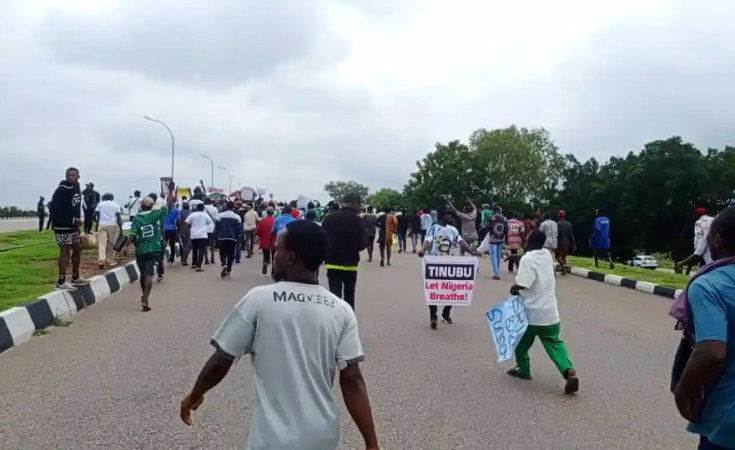According to local media reports, at least 31 journalists were attacked across the country on 3 August. Journalist Yakubu Mohammed, a reporter with the Premium Times, was attacked, harassed, beaten and gun butted on the head sustaining injuries. Similarly, journalist Jide Oyekunle of the Daily Independent Newspaper was maltreated by a policeman and his phone confiscated, while Punch Newspaper photojournalist, Kayode Jaiyeola was arrested by a police officer attached to the National Security Adviser, Nuhu Rabadu and was detained at the Federal Capital Territory (FCT) police Command.
The local daily Vanguard Newspaper also reported attacks on several journalists. In Kano, in the northern part of the country, Ibrahim Isah of TVC News was physically attacked by armed hoodlums sustaining hand injuries. In Delta State, the eastern part of the country, some journalists came under attack by counter-protesters allegedly supporting the government, according to the same news outlet. Prince Amour Udemude, an investigative journalist, Matthew Ochei of Punch Newspaper, Monday Osayande of Guardian Newspaper, and Lucy, a reporter with Pointer, were assaulted and had their equipment destroyed. Furthermore, nine Radio Ndarason Internationale staff members were arrested at RNI offices in Maiduguri as they were reporting on the protests.
The Press Freedom officer of the International Press Centre (IPC) based in Lagos, Melody Akinjiyan said that the alarming trend jeopardised the safety of journalists involved and undermines the integrity of the information that the citizens rely upon to fully understand the crisis. The IPC he said, 'finds it totally appalling that journalists covering and reporting the protest are still being targeted, victimised and brutally assaulted by security officials, hoodlums and anti- protesters. IPC frowns at this inhumane attitude towards the media and press men and women in the course of serving as a societal watchdog'.
IFJ Deputy General Secretary Tim Dawson said that targeting journalists who are covering the protests in Nigeria by the security forces is unacceptable and must be seen as a deliberate attempt to intimidate and silence the media from reporting the truth. "The scale and spread of these attacks is deeply concerning and suggests that they are being orchestrated and directed. Journalists fundamentally protect democracy, and those who attack them seek to undermine that safeguard. The Nigerian government must make clear that its role is to safeguard media workers and to punish those who attack them - all the more if the attacks come from members of the security forces or supporters of the governing party".
The IFJ calls on the Nigeria Government to conduct a thorough investigation into the attacks on journalists and prosecute the perpetrators of these unwarranted attacks.


